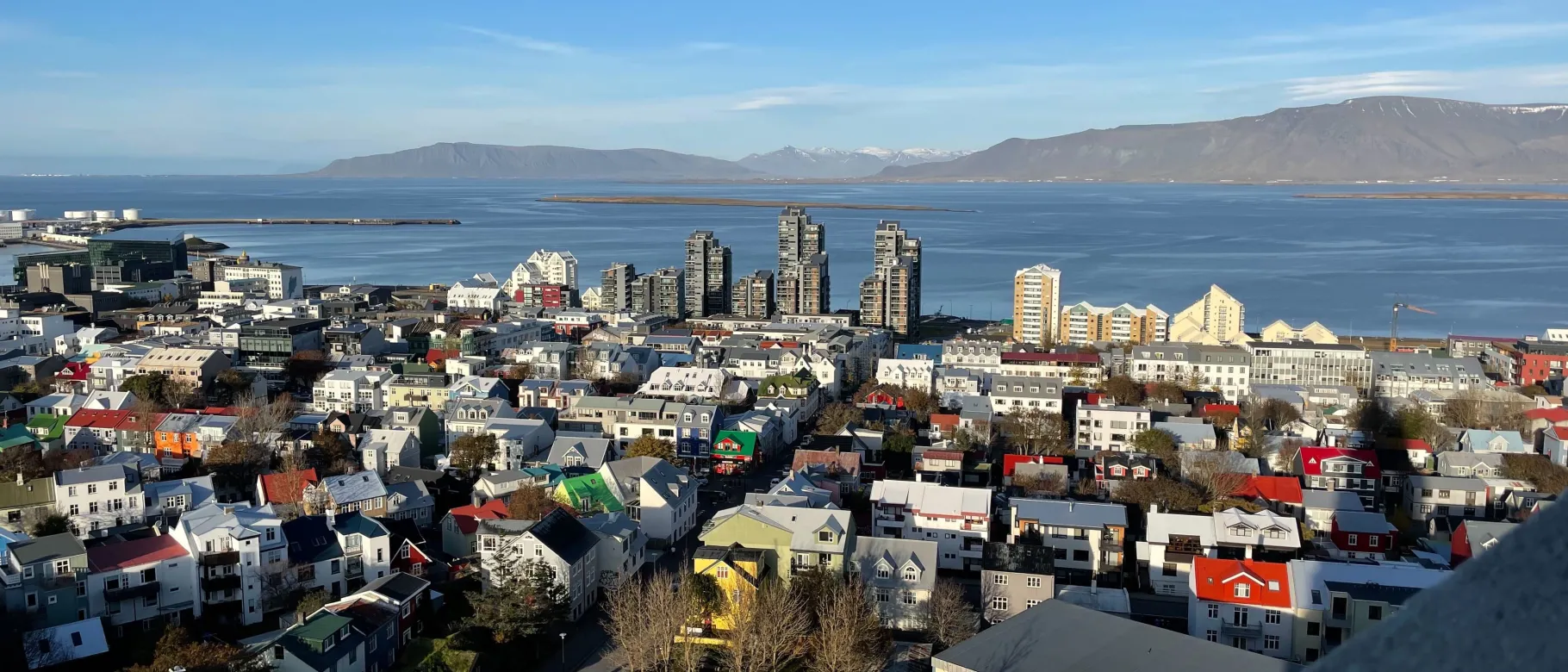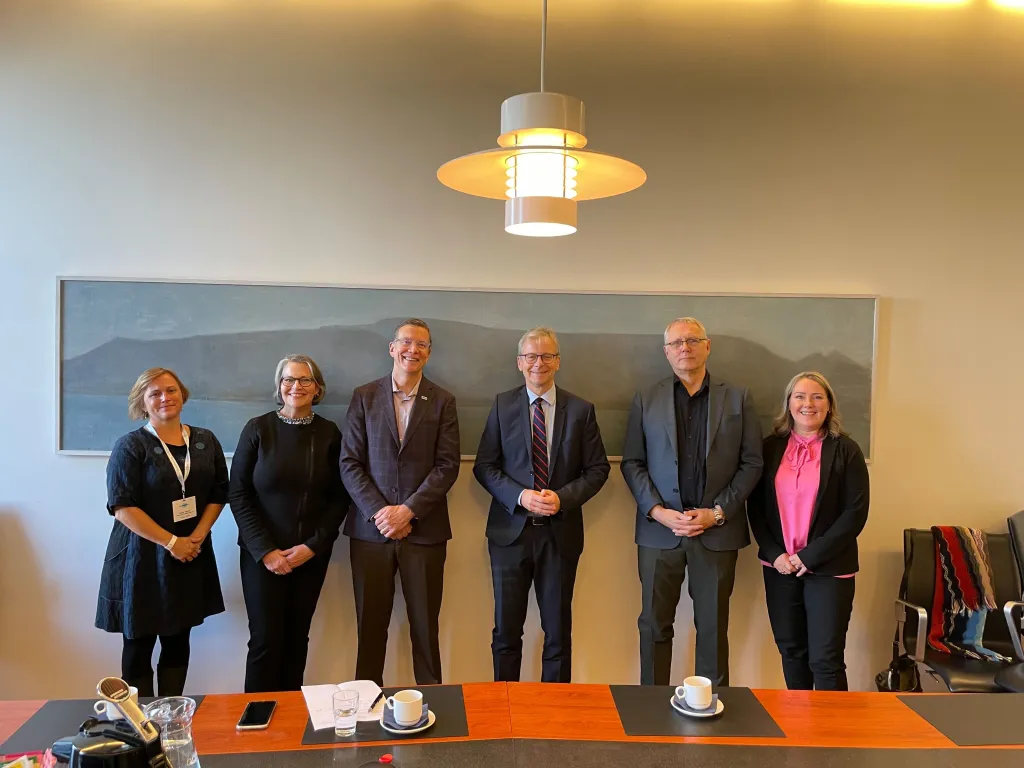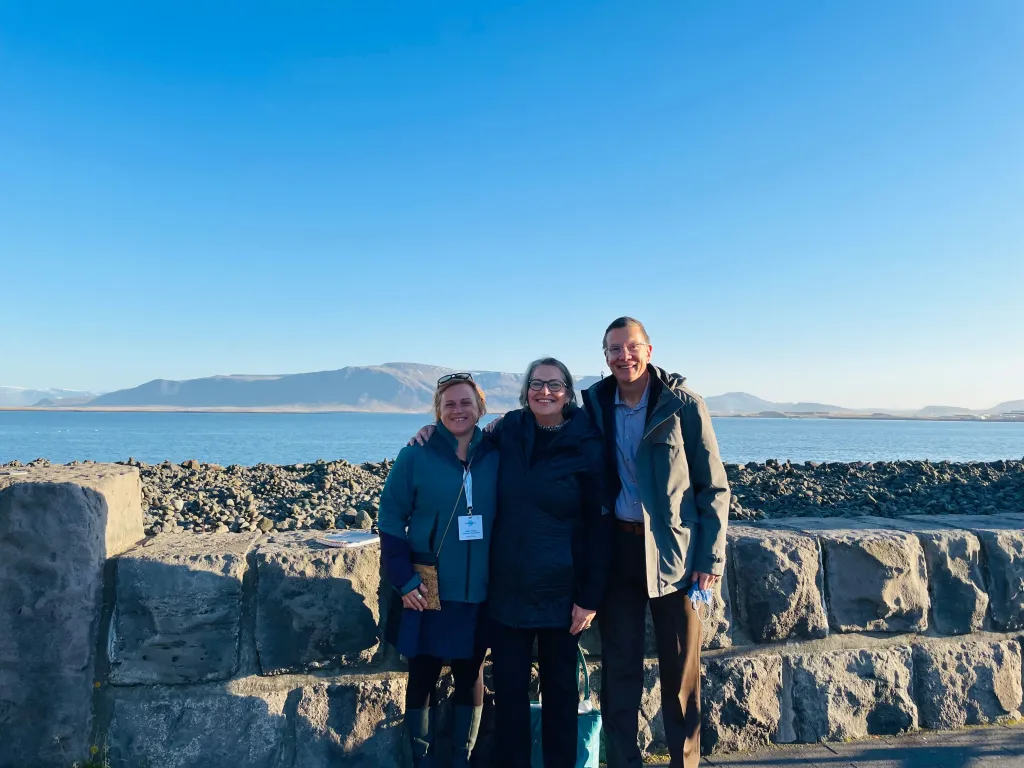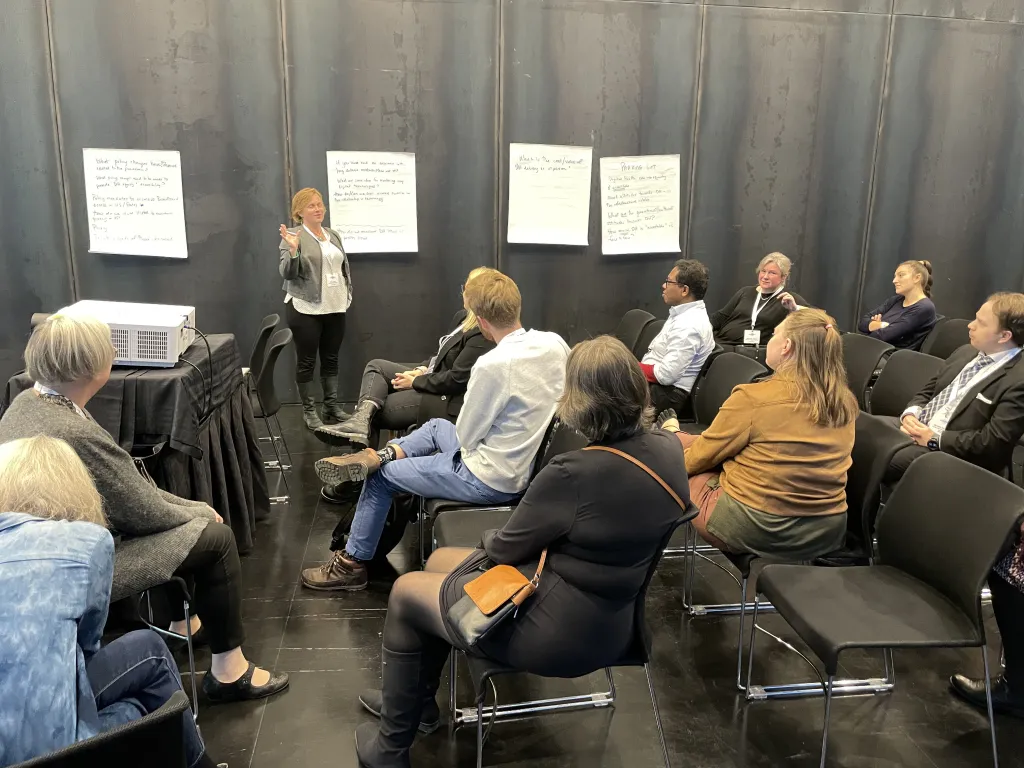UNE a leading member of Maine delegation at Arctic Circle Assembly in Iceland

The University of New England recently sent a delegation to the Arctic Circle Assembly in Reykjavík, Iceland, the first meeting of the Assembly since the COVID-19 pandemic began.
UNE sent six delegates to the Icelandic capital in mid-October, including UNE President James D. Herbert, Holly Parker, director of UNE North: The Institute for North Atlantic Studies, and Karen Houseknecht, associate provost for Research and Scholarship, in addition to three UNE North advisors.
The Arctic Circle Assembly is the largest annual international gathering focused on the Arctic, this year drawing 1,400 participants from 40 countries interested in the future of the region to the Harpa Concert Hall and Conference Center in downtown Reykjavík. Despite the massive number of attendees, due to strict vaccination and testing protocols, there were no cases of COVID-19 transmission.
This year’s event, the first in-person conference since fall 2019, featured over 100 sessions and 400 speakers, including UNE’s own Parker, who hosted a breakout session with colleagues from the University of Akureyri and National Health Service Scotland, entitled “Digital Health in the Arctic and Rural North — Challenges and Opportunities for Supporting Resilient Communities.”
“It was actually really emotional to return to the Arctic Circle Assembly and see our collaborators again after two years,” Parker remarked. “We saw representatives from industry, government, non-governmental organizations, and also researchers and young voices, and it gave us an opportunity to remember why we come together: we all have like minds and hearts around sustainable development, with thoughtful disagreement and discussion as to how to make real change in our communities. It’s exhilarating, and we came back exhausted and energized at the same time.”
Additionally, the UNE delegation met with University of Iceland Rector Jón Atli Benediktsson and senior leadership to discuss potential collaborations in education and research, which Herbert said was one of his main priorities for the trip.
Herbert remarked that he hopes to expand study abroad opportunities for UNE students to include health professions programs, such as nursing and public health, and environmental research programs in addition to those in the marine sciences. He noted that UNE already has strong foundations in Iceland because of its Professional Science Master’s in Ocean Food Systems — which takes students to Iceland for a two-week intensive research experience — but said there are greater opportunities for collaboration.
“Given the cultural affinities between Iceland and Maine, there is great potential for growth in research partnerships across academic disciplines,” Herbert stated. “This conference represents an opportunity for us to showcase what we do at UNE and also to learn about what’s going on in the rest of the world and in the high north, examine cultural trends, focus on global efforts of sustainable development and climate change, and develop and cement new academic partnerships.”



